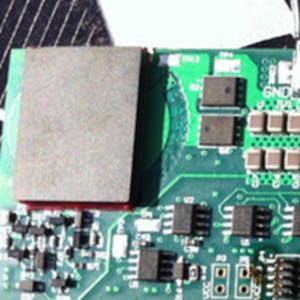Power Electronics is a crucial specialization for engineers, as 80% of electrical energy will be processed by power electronics in 2030. This course offered by University of Colorado Boulder equips learners with the knowledge to design modern switched-mode power converters and create high-performance control loops around power converters. The course focuses on understanding efficiency, power density, and cost trade-offs, crucial for professional advantages in the field.
The course modules cover a wide range of topics, from the introduction to power electronics to converter circuits, control, and magnetics for power electronic converters. Learners will understand the basic operating principles of switched-mode converters and how to implement power semiconductor devices in a switching converter. They will also be able to design and analyze feedback systems of switching regulators and optimize inductors and transformers for switched-mode power converters.
Certificate Available ✔
Get Started / More Info
This specialization covers design-oriented analysis, modeling, and simulation techniques, leading to the practical engineering of high-performance power electronics systems.
Understanding what a switched-mode converter is and its basic operating principles is crucial for any engineer specializing in power electronics. This module focuses on equipping learners with the necessary knowledge to solve for steady-state voltages and currents of various power converters and derive an averaged equivalent circuit model to analyze converter efficiency.
This module delves into the implementation of power semiconductor devices in a switching converter, understanding the origins of the discontinuous conduction mode and solving converters operating in DCM. Learners will also understand the basic dc-dc converter and dc-ac inverter circuits, as well as how to implement transformer isolation in a dc-dc converter, including popular topologies like the forward and flyback converter.
Design and analysis of feedback systems of switching regulators is crucial for creating high-performance control loops around power converters. This module provides learners with the knowledge and skills to effectively design and analyze feedback systems, a key aspect of ensuring efficient and reliable power electronics systems.
Magnetic components are fundamental in power electronic converters, and this module focuses on understanding the fundamentals of inductors and transformers. Learners will be able to analyze and model losses in magnetic components, understand design trade-offs, and optimize inductors and transformers for switched-mode power converters, all essential skills for designing modern power electronics systems.
Algorithms for Battery Management Systems equips you with the skills to model lithium-ion battery cells and implement sophisticated algorithms for estimation and...
This course teaches the design and analysis of feedback systems for switching regulators, enabling students to gain expertise in controlling switching converters....
Input Filter Design offers an in-depth exploration of electromagnetic interference (EMI) and electromagnetic compatibility (EMC) in power electronics. Gain expertise...
Master the art of RF and millimeter-wave circuit design with this unique course from Eindhoven University of Technology.